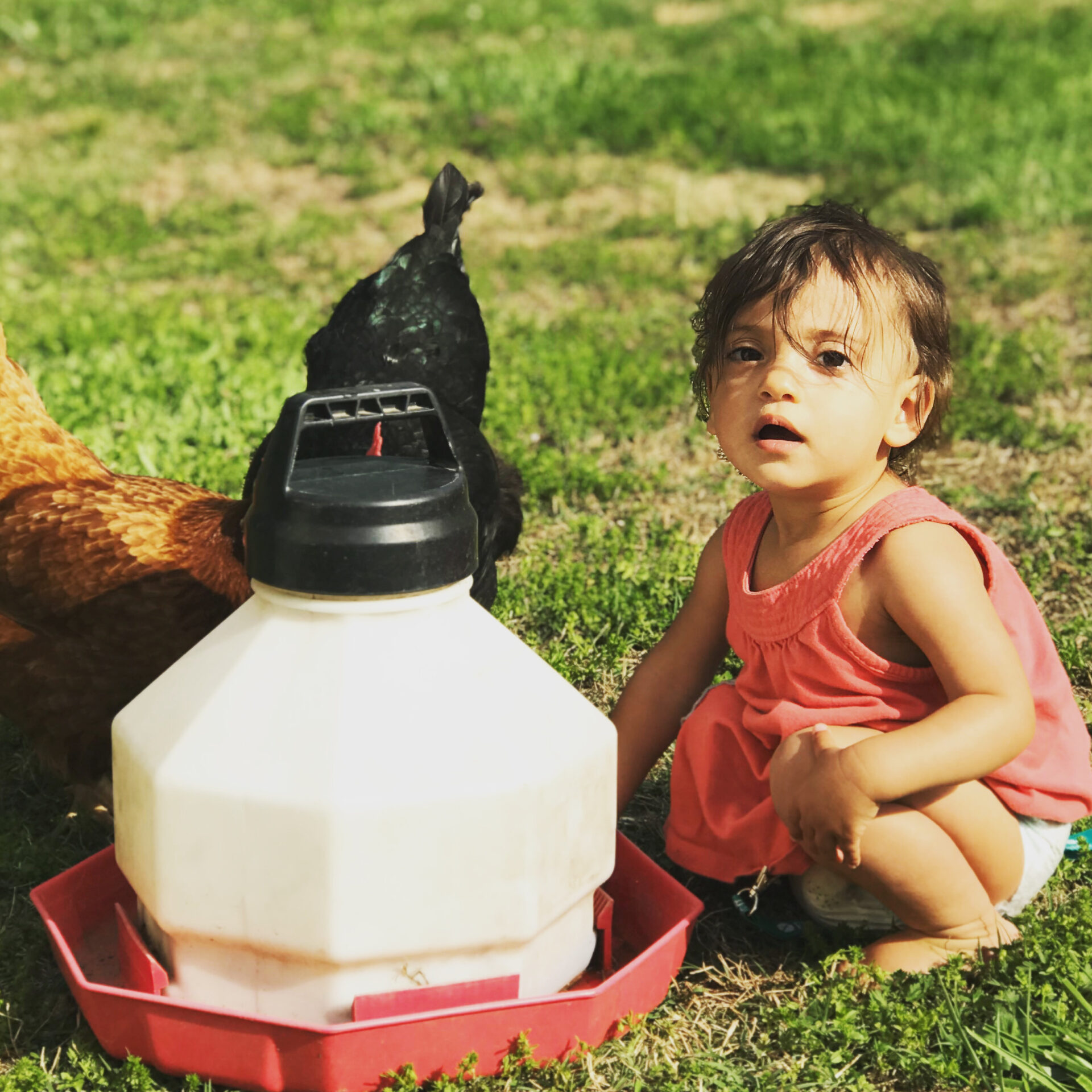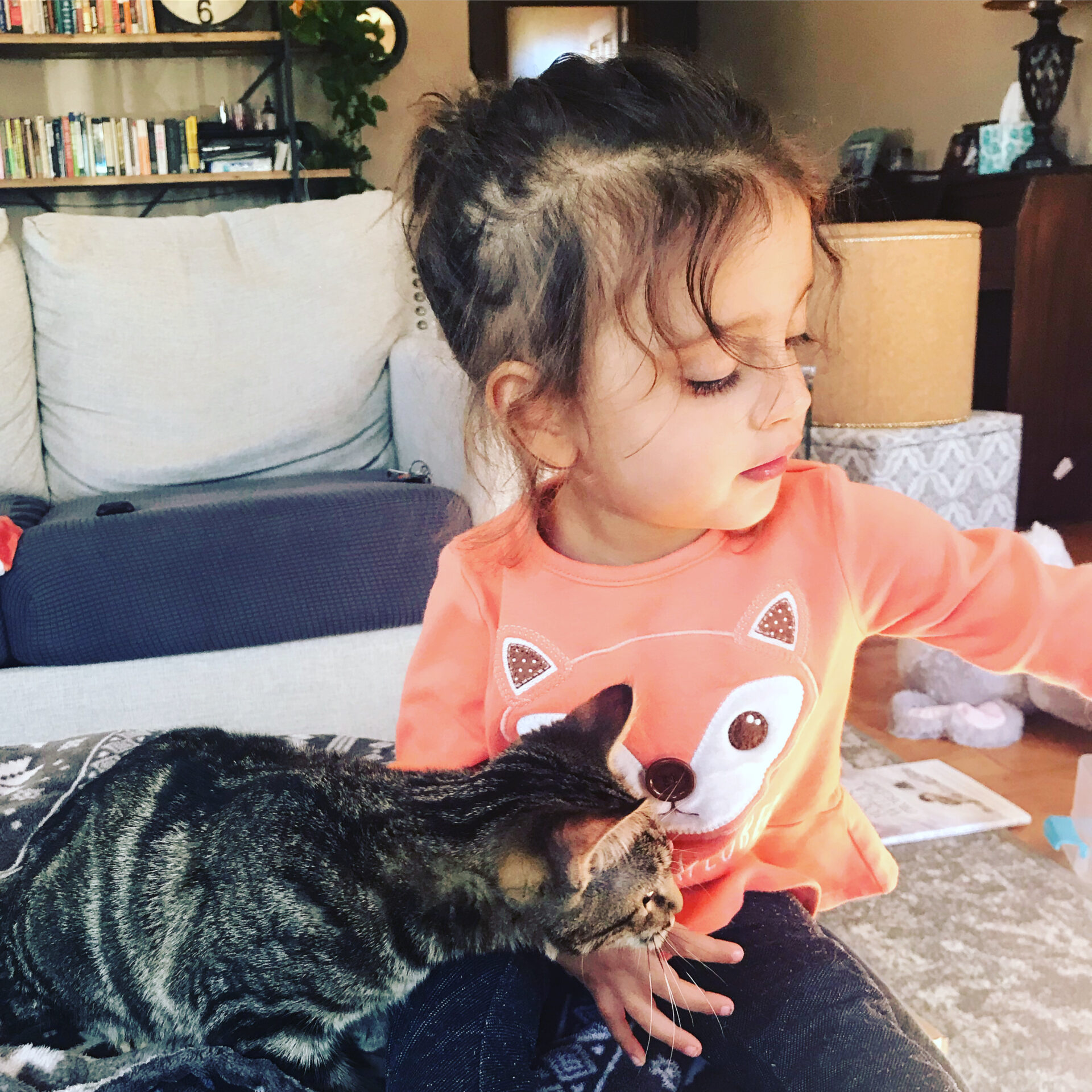Death is a natural part of life that, eventually, everyone will have to face. While living on a homestead, this time may come sooner rather than later. The death of a pet or livestock is often the first experience your child will have with dying. This time may be confusing and difficult to navigate for everyone involved.
We had our first encounter with death when our daughter was one and a coyote attacked our flock. There were no survivors but, at the time, we weren’t too concerned about the impact it would have on her because we knew she wouldn’t remember the chickens.
However, a year later, our neighbor’s dogs broke into our chicken coop and killed five of our egg layers along with our rooster. We were devastated. We had raised these chickens since they were a day old and had put so much work into making sure that they were tame. Not only that, but our daughter had always been involved in their care and treated them like they were hers.
This was not familiar ground and we put a lot of thought on how to best navigate the situation.
Answer questions honestly
As soon as my daughter walked outside, we knew she was going to ask where the missing chickens were. While we cleaned up the mess, it was obvious that something had happened. So, we considered our options.
We could tell her that the chickens went away but knew this would open us up to more questions. Where did they go? When would they be back? Why did they go? My daughter once asked us, “why?” in response to different answers fifteen times in a row. We knew this was not the simplest solution.
On the other hand, we could tell her the truth. By being direct and realistic we could circumvent the chance that she would ask for more details and provide her with an opportunity to learn.
While it felt like being honest was taking away her innocence and exposing her to the realities of life too early, we have also worked hard to establish a relationship of trust. It was no contest that telling her the truth was the best way to go.
How to discuss death with a toddler
Death is not an easy concept to grasp for most adults let alone a small child. When it came to explaining, we stuck to the basics. We told our daughter that the chickens had died which meant that their bodies had quit working. We also explained that we wouldn’t being seeing them anymore as death is permanent.
Avoid euphemisms such as “went to a better place” at all cost. We didn’t want to confuse her by unintentionally implying that they would be coming back.
When the inevitable “why?” came we kept it short and sweet by letting her know that it was an accident and, sometimes, accidents happen. We emphasized that it was normal to be sad and that we were both disappointed that we had lost so many members of our flock.
Processing their feelings

Toddlers are one big bundles of feelings and, if you have one, you know that sometimes they don’t react the way you anticipate they will. It surprised us to see that after her initial sadness, my daughter was seemingly unaffected and moved on to play not two minutes after we had told her.
What I had failed to consider was that her emotions would come out in different ways. That day, she struggled with transitioning and threw fits over little things, like not being able to find her shoes. She also displayed some manic tendencies; she would go from throwing a tantrum to laughing and singing.
We made sure to check in with her frequently by asking about how she was feeling. While toddlers may struggle to identify why they are feeling the way they are, they usually have no trouble letting you know how they are feeling. Our daughter was able to verbalize that she was feeling upset and we made sure that we processed that with her.
Additionally, we have always made it a point to connect feelings with a coping skill. When she is angry, we encourage deep breathing and counting. When she is sad, we ask if she would like to go to her safe place. By teaching her how to deal with her emotions at an early age, we are hoping that she will be able to regulate her feelings better as an adult.
Modeling how to grieve
We have dual-purpose chickens so we had planned at some point on losing part of our flock. However, we found that there is a big difference between a planned death and ones that take you by surprise.
We don’t name our chickens. They will come up to us but aren’t particularly attached. In their eyes, we could be easily replaced by anyone with food.
Therefore, we were surprised to find that, after our initial disappointment faded, we were faced with feelings of loss.
There are many things we will always try to protect our daughter from, but feelings are not one of them. We make it a point to be open and display what we are feeling while she is watching. In this instance we felt sad, disappointed, and a sense of failed of responsibility. It was crushing to know that we hadn’t made our coop predator proof and it was our main responsibility to do so.
If there is one thing a parent should know it is that their child is always watching. When we sat down to tell our daughter what had happened, we did not hide our feelings from her. She needed to know that it was okay to be upset and that we were feelings those things right along with her.
Dealing with death on a homestead
Death is the great inevitability. Living on a homestead, it is also a reality that pops up when you least expect it. Talking to your child and helping them process is not an easy thing to do. By being open, honest, and direct you are establishing trust and making a confusing time a little less stressful.




